You probably weren’t aware of this but hidden from view in the last decade or so there has been an
increasing interest in the psychological theory of 20th century Swiss Psychiatrist Carl Jung. Some of
the biggest brands, the most central institutions, and the most prominent political movements are so
influential precisely because they understand how to exploit one of Jung’s most fundamental
concepts: The collective unconscious.
You would be forgiven if you have never heard of the collective unconscious before; it is an entirely
misunderstood and contentious concept. Jung argued that, as well as the personal unconscious
popularised by Freud – which is unique to every individual – the unconscious psyche had a much
deeper level which is typical across the human species. This collective level is the deepest and most
primitive part of the human psyche, which comes programmed in all individuals at birth. Jung viewed
it as a ‘psychic substratum’, sort of like a network of archaic information deposited into the nervous
system as humans have evolved. This inherited, pre-built structure of the unconscious directs us to
behave in typically human ways.
In Kevin Lu’s words, the collective unconscious is the:
‘general part of the unconscious mind; derived through aeons of repetition of human cultural imagery
and experiences that, despite differences in detail, remain typically human with recognisable
commonalities and meanings. ‘
What actually is the collective unconscious?
We have a conscious and an unconscious mind which speak very different languages. The language of
the conscious mind is language – words, speech, etc. The language of the unconscious mind is image.
All your waking life, your unconscious mind communicates with your conscious mind in the form of
fantasy by spontaneously producing images, impulses, and flashes of insight. Whether this be
daydreaming or mind wandering in the day, or actual dreaming at night.
Think about what happens when a loved one is out late and doesn’t answer their phone. What
happens? Your mind immediately starts spinning together a narrative of a worst case scenario in your
head. This is an example of how the unconscious mind communicates: it produces images that play
out as a personal drama to influence your behaviour.
The point here is that your conscious and unconscious modes of thinking are entirely different.
Consciousness is logical, literate, and modern. Unconsciousness is emotional, imagistic, and primitive.
Consciousness is a very recent evolutionary adaptation. For thousands of years our brain engaged
only in unconscious activity – in fantasy production. Jung himself argued that “There were psychic
processes and functions long before any ego-consciousness existed. “Thinking” existed long before
man was able to say: “I am conscious of thinking”. This means that, before consciousness developed,
primitive man engaged in the same cognitive activity as the rest of the animal kingdom. It was during
this time in our evolutionary history that the human brain was contained solely within the collective
unconscious – the deepest and most archaic layer of the psyche.
Because this type of thinking still occurs beneath our consciousness (and occurs in children before
they develop consciousness), we can argue that the collective unconscious is the activity of our brains
if consciousness were taken away.
If consciousness were taken away, what would be left is an a priori structure that exists beneath the
personal psyche. In it we would fine ‘traces of earlier modes of functioning’ and thinking which helped
us to survive in ancient historical epochs. If we only had this type of primitive, collective thinking, then
all brains in the human species would engage in similar activity, have similar thoughts etc. This shared
thought is not specific to any one individual but, in the absence of consciousness, can only be a result
of the shared evolutionary history of that species and the shared psychological makeup it results in.
Think about dogs: your dog engages in “thought”, but it doesn’t direct the thought itself – it has no
conscious control over what “happens” in its head. Rather, their thoughts and behaviours are driven
by their automatic reactions to environmental cues – which is exactly what instincts are. So we can
assume that the thoughts going on in the head of one dog are remarkably like the thoughts of a dog
living on the other side of the world. So in other words, their thoughts both arise from a collective
pool of psychic activity – or a collective unconscious.
You can think about it in terms of other animals too: How do honeybees intrinsically know how to
build hives? How do dogs intrinsically know to chase cats? How do birds intrinsically know when and
in which direction to migrate? How do spiders know to spin webs? These are behaviours which are
innate and need not be taught.
If all organisms manifest identical behavioural patterns which are automatic, then we have to assume
that it comes from some sort of unconscious behavioural framework which is inbuilt. This collective
behaviour would only be possible if it was drawn from an unconscious network of inherited
information, which Jung viewed as the ‘deposits of the constantly repeated experiences’ of that
species into the nervous system itself.
To give a more modern example: Imagine you are buying a new phone with 64gb of memory. What
happens when you receive the phone? Can you access all 64gb of that memory? No. The phone
comes pre-programmed with a certain amount of essential information without which it couldn’t
function. And this is exactly what Jung meant by the collective unconscious: There is a certain portion
of our unconscious mind that is actually built into the psyche through evolution. Without this network
of information, we couldn’t function in the world or function collectively with other members of the
species.
Why should I care about the collective unconscious?
The collective unconscious remains one of Carl Jung’s most fundamental yet debated contributions to
psychology. It has attracted criticism from many disciplines, perhaps mostly from the behaviourists,
whose ideas are based on the notion that individuals are born with nothing pre-determined about
them. But how can we continue to deny the validity of a collective unconscious – of a repository of
pre-determined inherited information and fixed behavioural patterns – when identical twins raised on
opposite sides of the world are disproportionately more similar than step-siblings raised in the same
household?
The really interesting stuff starts when we recognise that concepts from the collective unconscious
can be recreated or turned into symbols by brands and companies alike. In fact, the reason that
multinational brands should care about the Jungian collective unconscious is because, in a world of
unlimited information, it is the only thing which guarantees you the singular attention of your
customers. For when we see symbols and concepts which relate to the collective unconscious, it has
such an influence over us precisely because we recognise it as part of our unconscious human hard-
wiring.
The truth is that there is no more powerful a tool which brands and businesses can wield – but more
on that next time.
Matthew S. Machin
MINDS AND MARKETS
What Conventional Finance can't tell you
Demystifying the relationship between psychology and finance
BY MATTHEW S. MACHIN
| Market Psychology Series #3
| 15 January 2021
Photo by Kristina Flour on Unsplash
























































